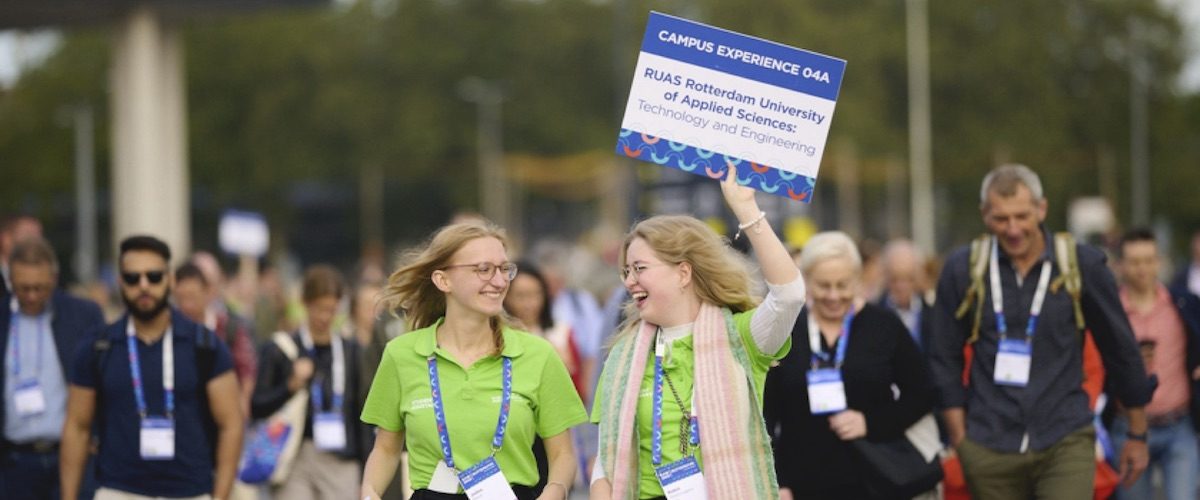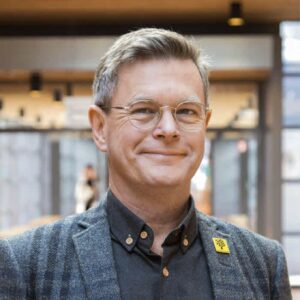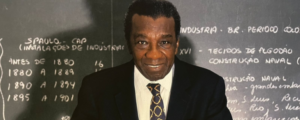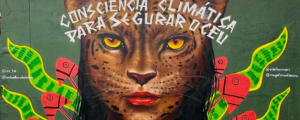Ciência & Cultura — You have co-coordinated a major effort of an IAU Open Science Expert Group to produce an initial report and recommendations to universities all over the world concerning adoption and implementation of Open Science policies. Can you please give an overview of what IAU is, and what prompted it to create this group?
Peter Aronsson & Trine Jensen — The International Association of Universities (IAU) was founded in 1950 under the auspices of UNESCO and its Secretariat has been hosted at UNESCO Headquarters’ in Paris, France since its inception. It is a membership association bringing together higher education institutions from all regions of the world, as well as the regional university associations. As the global forum for leaders of universities, the IAU convenes and connects almost 600 Members from more than 130 countries to identify, reflect and act on common priorities. It acts as the global voice of higher education to a wide range of international and inter-governmental organizations, in particular to UNESCO. The IAU created the Expert Group on Open Science following the adoption of its policy statement on Transforming Higher Education in a Digital World for the Global Common Good (2022). This policy statement recognizes the UNESCO Recommendation on Open Science. The aim of the expert group is to bring together leaders and experts on Open Science from within the universities to outline the key challenges and opportunities for the universities in this important transition. The added value of the Association is that it is global in scope, which means that these conversations and exchanges bring together perspectives, opportunities, and challenges from all regions of the world. It is also a means to create awareness about how certain ways of pursuing Open Science in certain areas could have implications in other parts of the world. The key target group of the IAU is the leadership of universities, and this is an essential audience to have onboard in order to foster change. Furthermore, Open Science is related to all the different priorities that IAU is working whether it concerns leadership, internationalization, sustainable development or digital transformation. Open Science comes as a central theme along all of these and is a prerequisite for the global academic exchange to use its full potential.
“Science creates knowledge as a community effort.”
C&C — Can you single out some major challenges that universities face concerning the implementation of such policies?
PA & TJ — One of the major challenges for universities is to implement a cultural change towards Open Science as it entails change in processes, in traditions across the institution which takes time and depends on the different incentives put in place to favor this change. However, the expert group highlighted three important aspects which are essential to keep in mind in this process, namely that:
- Building trustworthiness of science: Science creates knowledge as a community effort. At its best, that community is global and open to researches and scientists from all parts of the world. The sharing of practice increases the accuracy and reduces the uncertainties of its findings. Science is ideally self-correcting through skeptical review, independent reproduction or replication and statistical validation. Its processes help us to ensure academic quality and differentiate between misinformation and legitimate, evidence-based knowledge and hence ensuring the trustworthiness of science requires constant vigilance by scientists and their institutions, particularly universities.
- Building a global knowledge stream: Another important priority is that universities must recognize, respect and benefit from the global diversity of cultures, practices, and priorities that they encompass internationally. When considering the contribution to the global knowledge stream, it is very unequal and not representatives of all the countries of the world. So it is a commitment to a more inclusive and collaborative contribution to knowledge production to address the inequalities that are still prevailing in today’s world.
- Building equitable systems for knowledge sharing: In the previous point, we mentioned the importance of a truly global knowledge stream in terms of knowledge production. In the same manner, equitable access to the global knowledge stream is equally significant both as a profound asset to the research and teaching of a university and a means whereby a university’s own research can contribute to the wealth of human understanding. In today’s world, much of the stream of knowledge is owned by commercial publishers, who either require payment to release it to universities or allow free access by readers (open access publications) but transfer this payment to authors. Irrespective of the mode of payment, this system unfortunately represents a great challenge to poorer institutions and low- and-middle income countries and thus negatively impacts the inclusive diversity referred to above.
So while these are important aspirations behind the Open Science agenda, they require profound transformations of current systems and traditions and that take time and leadership to implement these changes. However, we hope that the recommendations of the report will incentivize universities to get engaged and contribute to shaping this transformation.
“Ensuring the trustworthiness of science requires constant vigilance by scientists and their institutions, particularly universities.”
C&C — Many countries, scientific bodies and international institutions (notably UNESCO and the OECD) have already published reports and recommendations on Open Science. Why the need for a document for universities?
PA & TJ — Indeed there are already many reports available, and as explained, at IAU we are also connecting our work to the UNESCO Recommendation on Open Science, and we are pleased to see this common global framework outlining globally agreed principles and goals. Yet, within the science ecosystem there are many actors and players, and we believe at the IAU that it is important to consider the perspectives of the universities and their specific challenges in this transformation. Universities are essential in this transformation, and they should contribute to shaping the implementation of the principles. We believe that, while it is helpful that international governmental organizations are placing open science on the agenda, it is likewise as essential that universities contribute to shaping how these are implemented in practice or call attention to some of the key challenges, which are difficult to address. Convening universities from different parts of the world, equally allows generating awareness in terms of how different initiatives in different parts of the world are impacting each other and raise awareness about the challenges, which require global solutions. While UNESCO Members States are monitoring progress towards the principles of Open Science, the IAU can be instrumental in monitoring progress from the perspective of the universities and identify what they see as the major obstacles in the pursuit of this agenda. It can also foster exchange of experience to build capacity through mutual collaboration.
“University’s own research can contribute to the wealth of human understanding.”
C&C — Could you please comment on the report recommendations, perhaps pointing out a couple?
PA & TJ — The most important aspect of the report is that it takes a comprehensive approach to Open Science: acknowledging the full breadth of data, methods, and publication of output in research and education, exchange with stakeholders, communities, and enterprises of all kinds. The report makes several recommendations to support the principles laid out above, but of course each of the recommendations would have to be considered in light of the local context, the constraints, and opportunities within each and every university. However, it singles out some significant challenges for universities and the Association wishes to continue to create conversations about these, to favor knowledge exchange among institutions on how to tackle them, and co-create solutions. While UNESCO monitors the implementation of the Open Science Recommendation from a state and policy perspective, the IAU is ideally place to monitor the state of the art and transformations, the challenges related to the implementation of Open Science principles at the Institutional level.
“Universities must recognize, respect and benefit from the global diversity of cultures, practices, and priorities that they encompass internationally.”
C&C — This report was presented at the IAU International 2024 conference that took place in November 22-24 in Japan. What feedback did you receive from the university representatives in the conference? What are the future plans for the Expert Group?
PA & TJ — The reception of the report was overwhelmingly positive and affirmative. Many participants participated in the section and in the debate. The report does not pretend that the transformation will be simple in any form, there are diverse challenges and connected problems related to each of the recommendations. Some of these were discussed, such as: would open science have a negative impact on the quality of research publications? How to balance strict demands on scientific rigor with respect to various knowledge practices? How to defend the free and public character of knowledge in a world where science is also under pressure of political and economic interests? One of the key assets of the IAU is that it can convene conversations about these important topics with perspectives from all regions of the world, and at the same time represent the voice of universities to international governmental organizations such as UNESCO. We hope that this publication is received as both thought-provoking and inspiring for universities as they reflect on how they wish to engage and contribute to this transformation where knowledge is open to build human capacity to address the challenges of our world.











